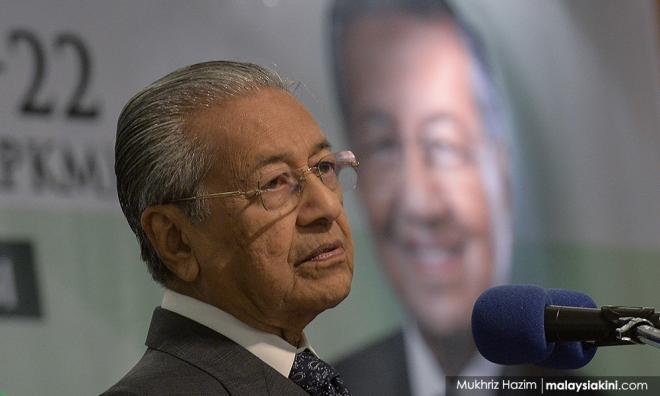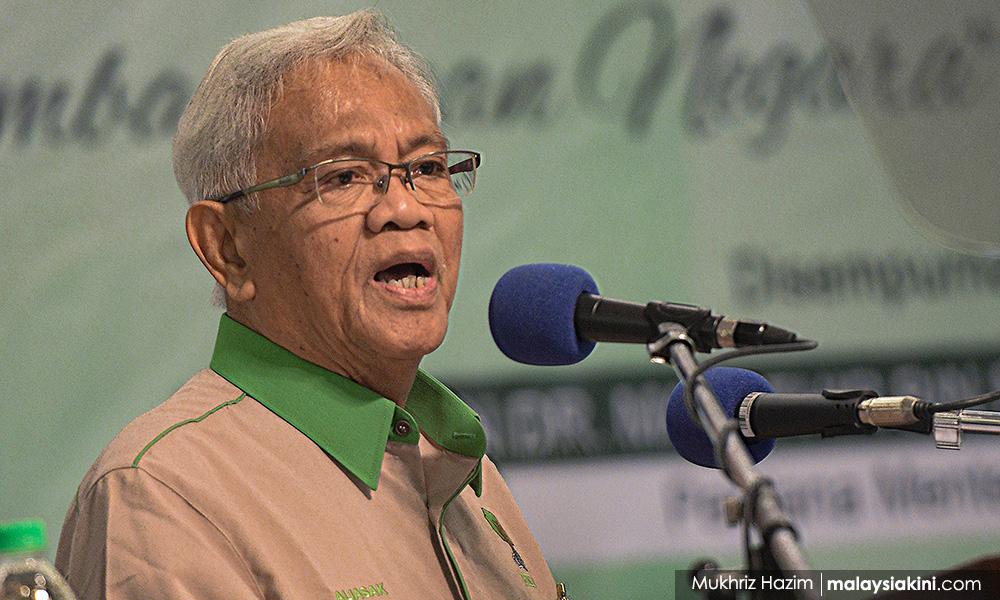
Rather than rely on government aid, Prime Minister Dr Mahathir Mohamad has urged smallholders to strive for financially independence by re-organising their plantations in a more professional way.
At a National Association of Smallholders (PKPKM) event this morning, he was asked to consider offering smallholders grants rather than cheap loans to help them weather the replanting period, especially in light of industry uncertainty.
In response, the prime minister took pains to explain how such uncertainty could be properly addressed by implementing systemic changes.
Instead of tending to them individually, Mahathir proposed that smallholders merge their plantations and hire professional “estate managers” to run their estates in order to boost earnings.
Also, he said they could diversify into food crops as this would make them more resilient during oil palm replanting periods and when world commodity prices dived.
“Once we merge plots to make them a bigger piece of land; and allocate a portion of it for vegetables, fruits and other crops like bamboo [...] I am sure that there will no longer be any need to borrow money from the government for the replanting period.
“Not only would we not need loans anymore, we won’t even want the government to help us because we can stand on our own two feet, this is what the government hopes for.
“This way, we hope that smallholders and farmers will obtain the same level of income as those working in cities, so that there is less gap in income levels,” he said at the launch of PKPKM’s biennial general meeting in Ampang.
“However, if we do not change the way we do things, we will forever need to rely on aid during the replanting period,” Mahathir added.
Why teach youth to borrow?
Announced last Friday, Budget 2020 has allocated RM550 million in replanting period loans for palm oil smallholders at a two percent interest rate, which is far lower than usual bank loans.

Earlier during the event, PKPKM president Aliasak Ambia (photo) had urged Pakatan Harapan to revert to offering no-payback grants to smallholders during the replanting period, when there was no yield.
“In the past, the government would give us bantuan (aid) when we have to replant our oil palm trees, but now they are giving us loans.
“This means we are teaching our youth and rural folk to borrow money, which they can’t and won’t be able to repay [...] we hope the government will reconsider this move before any problems happen,” he said to rousing applause from the many smallholders present in the hall.
Aliasak also hoped the government would improve on how smallholder cooperatives were being run to ensure more dividends - a proposal which Mahathir agreed with.
Established back in 1975, PKPKM boasts some 150,000 registered members.
Asked later about his proposals, Mahathir reiterated that smallholders needed to merge their plantations in order to improve their productivity and earnings.
He referenced to an ongoing pilot project in Langkawi involving small-time padi farmers.
“We have started with padi farmers and I believe a few of them have already agreed (with the scheme) [...]
“We are asking the Agriculture Ministry to do it. In Langkawi, for example, they have (merged) several farms together to introduce padi pulut plants,” he said, adding that the ministry will be looking into a similar scheme for palm oil smallholders. - Mkini


No comments:
Post a Comment
Note: Only a member of this blog may post a comment.